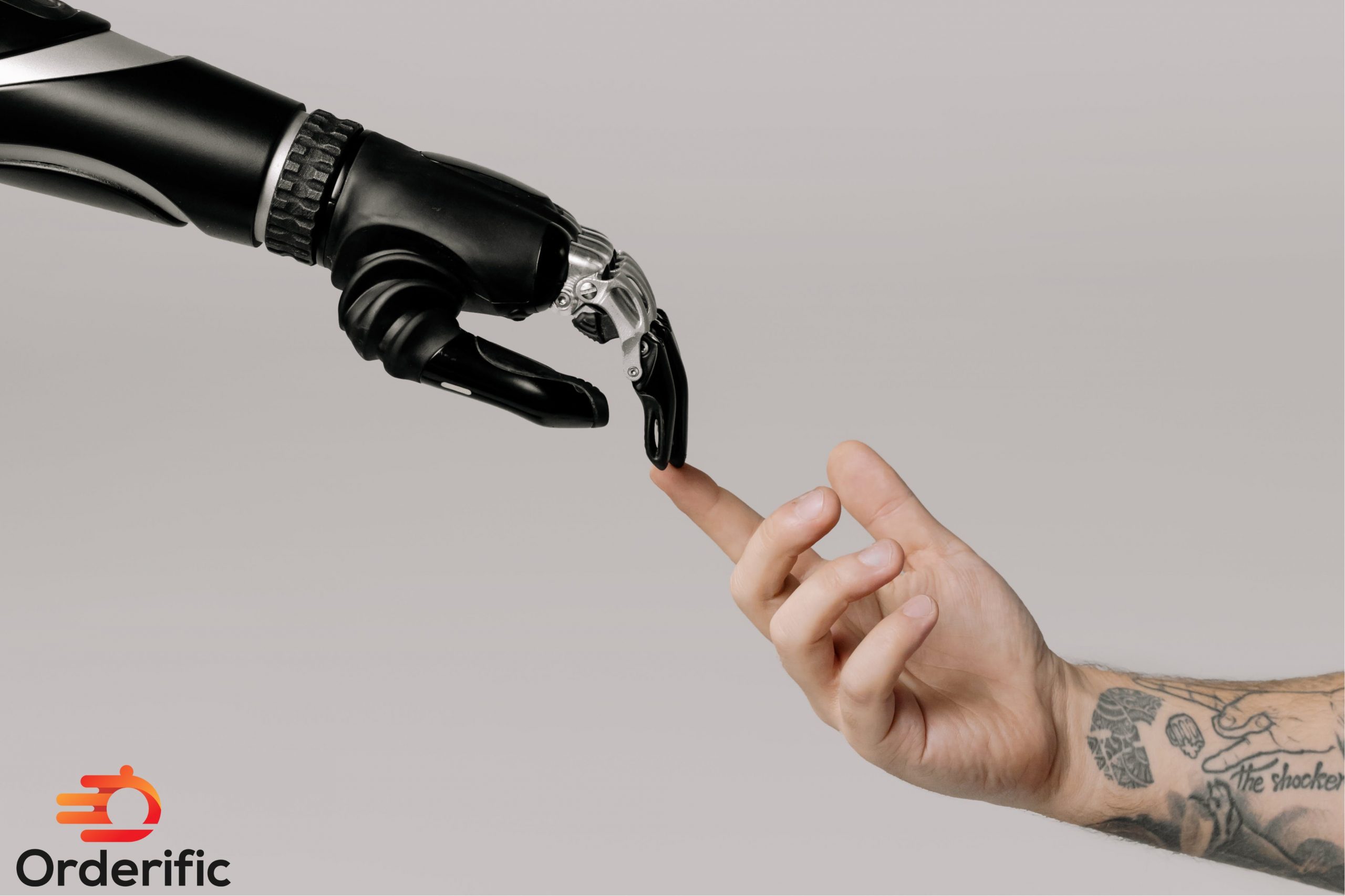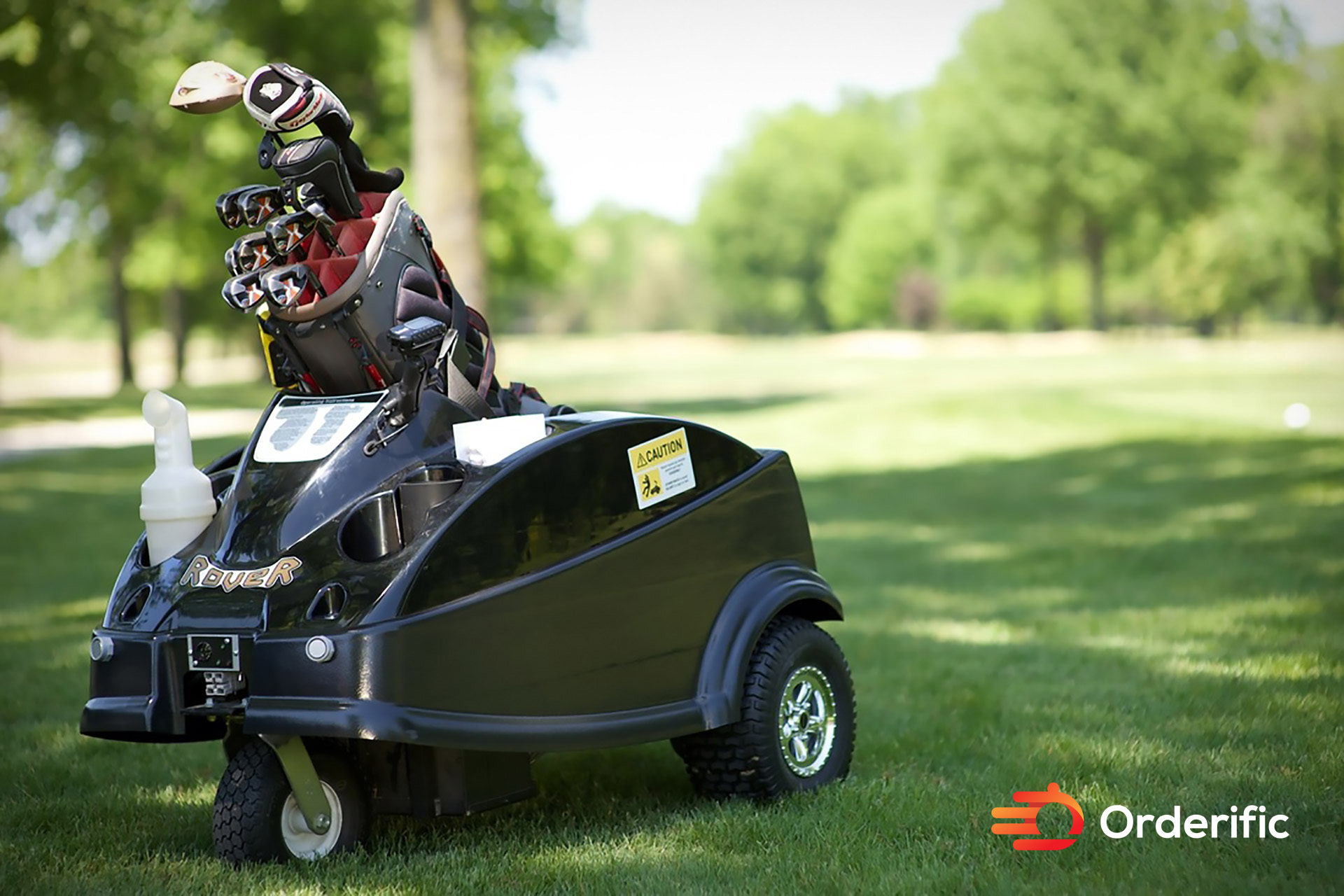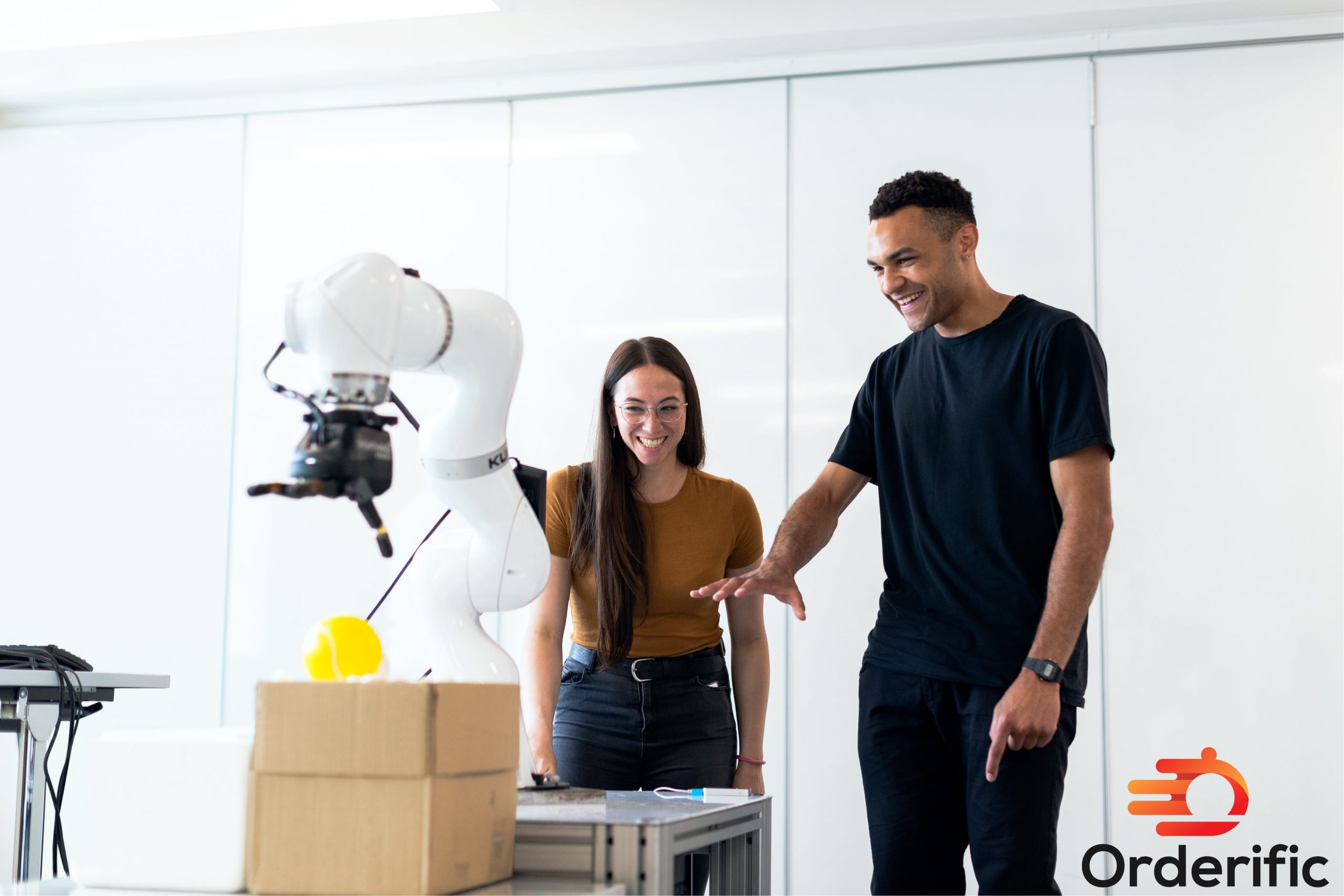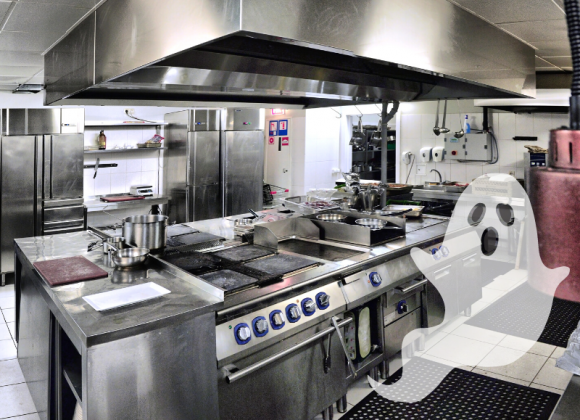Introduction
Artificial intelligence, predictive analytics, and tech evolution are becoming pivotal game-changers in the dynamically evolving food truck industry. Leveraging the power of AI, food truck operations are harnessing vast amounts of data to forecast customer behavior, enabling them to make more informed decisions. Predictive analytics tools and machine learning algorithms delve into historical data, churning valuable insights for menu planning and location optimization. This fusion of data science and AI technology promises to revolutionize how food truck businesses operate, paving the way for unprecedented efficiency and customer service. Join us as we delve into the fascinating world of how AI, machine learning, and predictive analytics are reshaping the landscape of the food truck industry.
The Role Of Predictive Analytics And AI In Revolutionizing The Foodservice Industry
Fueled by a large amount of data, Artificial intelligence, and predictive analytics, tech evolution is transforming the food truck industry. Businesses can gain actionable insights to drive their marketing strategies through predictive analytics models, AI technology, and machine learning algorithms. The process involves data mining historical data, employing AI algorithms, and implementing supervised and unsupervised learning techniques to generate predictive models.
Data science shares a significant role in this procedure, with data scientists and analytics teams using advanced analytics tools to examine vast data. These tools provide descriptive analytics of past trends and offer prescriptive analytics to guide future decisions. This powerful combination of AI and predictive analytics goes beyond just web analytics, tapping into the power of deep learning and neural networks to understand complex patterns and customer behaviors.
Artificial intelligence, specifically predictive AI, is the backbone of these operations. It enables the system to adapt and evolve with new data, improving the accuracy of its predictive analysis over time. AI is revolutionizing customer service by providing a more personalized customer experience based on predictive modeling of individual preferences.
To harness the full power of AI and predictive analytics, businesses need to understand their value, which lies in predicting future outcomes and using these insights to make informed decisions. Embracing AI and machine learning presents a significant opportunity for food trucks to optimize their operations and redefine their customer service.
With the proper application, AI, machine learning, and predictive analytics can be a strategic advantage in the competitive food service industry. As the McKinsey Global Institute suggests, businesses that leverage these technologies effectively will ultimately lead the way, setting the new standard for customer service and operational efficiency.
How Predictive Analytics And AI Are Reshaping The Food Supply Chain
Reaping the benefits of Artificial intelligence, predictive analytics, and tech evolution, food trucks are now capable of making informed decisions based on data gathered from various sources. By implementing predictive analytics models, machine learning algorithms, and AI technology, these mobile restaurants are capable of predicting customer behavior. Leveraging big data and data science, the analytics teams examine historical data, extracting valuable insights and turning them into actionable insights.
Predictive analytics tools, driven by advanced analytics, provide descriptive and prescriptive analytics, helping businesses tap into the potential of deep learning and neural networks. The AI system, an amalgamation of generative AI and predictive AI, aids in improving the precision of predictive analysis. This augments the customer experience, as service becomes more personalized through predictive modeling of individual preferences.
Data scientists play a pivotal role in this transformation, sifting through vast amounts of data, implementing supervised learning techniques, and crafting predictive models. Through data analysis, the marketing teams can strategize better, making the most of the insights drawn from web analytics.
Artificial intelligence and machine learning are not just about predicting future outcomes. These technologies empower businesses to optimize their operations and redefine customer service. As suggested by the McKinsey Global Institute, those who effectively harness these technologies will emerge as leaders, setting benchmarks in service and efficiency.
In conclusion, the fusion of Artificial intelligence, predictive analytics, and tech evolution is ushering in a new era in the food truck industry. This revolution is not only reshaping the supply chain but is also promising a future where food truck operations will be more efficient, dynamic, and customer-focused.
The Future Of Food Trucks: How Predictive Analytics And AI Are Streamlining Processes
As we venture into the future, the food truck industry is poised to experience unprecedented transformation, largely powered by predictive analytics and artificial intelligence (AI). The vast amounts of data generated by these mobile restaurants are being harnessed using advanced analytics tools to derive valuable insights. AI technology, particularly predictive AI, is central to this transformation, enabling a more personalized customer experience based on predictive modeling of individual preferences.
The process begins with data science. Data scientists delve into historical data, implementing supervised learning techniques to generate predictive models. Big data is a critical asset in this process as it feeds machine learning algorithms, allowing them to adapt and improve their predictive analysis over time. Using predictive analytics tools, descriptive analytics of past trends are generated, and prescriptive analytics guide future actions.
Insights
These insights, amplified by the power of deep learning and neural networks, are not just about predicting future outcomes. They empower food trucks to make informed decisions about every aspect of their operations, from supply chain management to menu planning. AI systems, with their capacity to process and learn from vast amounts of data, are becoming essential in driving these strategic decisions.
Marketing teams, armed with these actionable insights, can tailor their strategies more effectively to customer behavior, leading to improved customer service. The journey, from data mining to realizing the insights, is a testament to the power of AI and predictive analytics in reshaping the food truck industry.
In conclusion, AI, machine learning, and predictive analytics are more than just buzzwords; they are critical game-changers. The fusion of these technologies, along with the pivotal role of data science, is ushering in a new era for the food truck industry. In this data-driven future, efficiency, dynamism, and a customer-focused approach will be the defining features of successful food truck operations.
Ways To Utilize Predictive Analytics And AI For Food Trucks

Understanding AI-Based Predictive Analytics
In the burgeoning food truck industry, understanding and harnessing the power of AI-based predictive analytics is becoming crucial. AI-based predictive analytics involve a blend of AI, machine learning, and data analytics techniques to process massive volumes of data and predict future outcomes. Data scientists play a pivotal role, in manipulating historical data to create sophisticated predictive models, while machine learning algorithms continuously learn and evolve from new data, enhancing their predictive accuracy over time.
The fundamental mechanism behind this innovative technology starts with data gathering, often termed “big data”. The data, sourced from various channels, is then sifted and analyzed using predictive analytics tools to generate descriptive analytics of past trends and prescriptive analytics to inform future decisions. The power of AI comes to the forefront here, tapping into the potential of deep learning and neural networks to comprehend complex patterns and predict customer behaviors.
The element of predictive AI adds a dimension of adaptability and precision, driving increased personalization in customer service through predictive modeling of individual preferences. The benefits of such a system are multifold. It allows food trucks to optimize everything from supply chain management to menu planning, leading to enhanced operational efficiency. Furthermore, it empowers marketing teams, providing them with actionable insights for better strategic planning.
Identifying Supply Chain Vulnerabilities
Predictive analytics and AI have the potential to identify vulnerabilities in the supply chain of a food truck business. The massive volumes of data generated during daily operations can be analyzed in depth using machine learning, AI, and predictive analytics. This analysis can highlight potential weak points in the supply chain that can lead to inefficiencies or losses.
For instance, algorithms can predict supply and demand, minimize food waste by optimizing purchase volumes, and even identify ideal price points. It can help pinpoint bottlenecks in the supply chain, such as frequent delays from specific suppliers or recurring issues with particular products. By predicting these issues before they become a problem, food truck businesses can take proactive steps to mitigate them, resulting in more efficient operations, cost savings, and improved customer satisfaction.
Furthermore, AI-based predictive analytics can optimize inventory management. By predicting the popularity of menu items, food trucks can effectively manage their stock and reduce waste. It can even anticipate fluctuations in demand due to factors like weather, local events, or seasonal trends, allowing businesses to prepare and adapt accordingly.
Predicting Market Fluctuations
The power of AI and predictive analytics also extends to understanding and anticipating market fluctuations. In the ever-changing landscape of the food truck industry, staying ahead of market trends and consumer preferences is paramount. AI systems, leveraging the potential of machine learning and predictive analytics, can sift through vast data on customer behavior, market trends, and competitive analysis to predict likely future scenarios.
For instance, predictive models can anticipate shifts in consumer preferences, enabling food truck businesses to adapt their menus accordingly. Additionally, these models can forecast potential changes in the broader market landscape, such as emerging food trends or new health regulations, allowing businesses to strategize and plan for these changes in advance.
Moreover, AI and predictive analytics can predict fluctuations in costs, such as ingredient prices or fuel costs, helping businesses maintain profitability in the face of varying market conditions. By monitoring real-time data from suppliers, market indices, and other relevant sources, these systems can provide early warnings of cost increases, allowing food truck operators to adjust their pricing strategies or explore alternative suppliers.
Thus, the fusion of predictive analytics and AI technology offers food truck businesses the ability to proactively respond to market fluctuations, keeping them agile, competitive, and profitable in an industry defined by its dynamism and constant evolution.
Proactive Risk Mitigation
AI and predictive analytics are redefining the approach towards risk assessment and mitigation in the food truck industry. Hence, By leveraging these technologies, businesses can proactively identify potential risks, devise effective strategies to mitigate them and improve their resilience to unforeseen circumstances.
One of the key areas where AI and predictive analytics deliver substantial risk mitigation capabilities is in the realm of health and safety. These systems can monitor and predict potential health risks, such as foodborne illnesses or violations of health regulations, allowing businesses to take preventive measures. They can also swiftly identify and isolate any potentially hazardous products or ingredients, thereby minimizing the risk of a public health incident and protecting the reputation of the business.
In addition, predictive analytics can help food truck operators navigate logistical challenges. So, Through advanced machine learning algorithms, these systems can predict traffic patterns, road conditions, and other logistical factors, enabling businesses to plan their routes more efficiently and avoid potential disruptions.
Enhancing Supplier Collaboration
By harnessing the power of artificial intelligence (AI) and predictive analytics, food trucks can greatly improve supplier collaboration. These advanced technologies are capable of processing vast amounts of data to identify trends and patterns that can inform strategic decision-making. For instance, using data on past supplier performance, predictive analytics can help businesses identify which suppliers are most reliable, analyze their cost-effectiveness, and even predict future performance based on historical trends.
Furthermore, AI technologies can facilitate real-time communication with suppliers. Hence, This facilitates swift adjustments to orders based on changing demand predictions, ensuring that food trucks always have an optimal supply of ingredients without excessive waste. AI can also predict potential issues with suppliers, such as delivery delays or quality issues, allowing businesses to proactively address these problems or pivot to alternative suppliers if necessary.
Streamlining Inventory Management
Inventory management is a critical component of the food truck business that can greatly benefit from the application of Artificial Intelligence (AI) and predictive analytics. The union of these advanced technologies can revolutionize the way food trucks manage their inventory, driving efficiencies, minimizing waste, and ultimately, bolstering profits.
AI-based systems can predict demand for various menu items with remarkable accuracy, using historical sales data, weather patterns, local events, and more. Furthermore, These predictions enable food trucks to optimize their inventory purchases, ensuring that they have just the right amount of ingredients on hand, eliminating the risk of over-purchasing and thereby minimizing food waste. Inventory management is thus transformed from an often time-consuming and error-prone process into a streamlined, data-driven operation.
Moreover, these systems can also monitor fluctuations in ingredient prices, alerting food truck operators whenever prices are about to rise. This allows businesses to adjust their purchasing strategies in real-time, potentially averting significant cost increases.
On another front, predictive analytics can assist in the timely replenishment of inventory, flagging when stock levels of certain ingredients are running low. This prevents scenarios of running out of key items during peak service hours, thus ensuring uninterrupted service and enhanced customer satisfaction.
Overall, the integration of AI and predictive analytics into inventory management practices offers numerous benefits for food truck operations, including cost savings, improved efficiency, and better customer service. So, With these cutting-edge technologies, food trucks are well-positioned to navigate the dynamic landscape of the food industry and thrive in a competitive market.
Conclusion
In the rapidly evolving realm of the food truck industry, Artificial intelligence, predictive analytics, and tech evolution have emerged as powerful tools, driving transformative shifts in how businesses operate. They offer unprecedented insights into customer behavior, unrivaled forecasting accuracy for market fluctuations, robust risk mitigation measures, and an overall enhancement in operational efficiency. Hence, These technologies facilitate a more streamlined approach to supply chain management and inventory control, thereby reducing waste and boosting profitability. Indeed, the fusion of predictive analytics and AI is reshaping the food truck landscape, equipping businesses with the agility and customer-centric focus that are key to success in such a dynamic market. So, At Orderific, we’re at the forefront of this revolution, using AI and predictive analytics to deliver game-changing solutions for your food truck business. If you’re ready to harness the full potential of these innovations, Schedule a demo with us today.
FAQs
How can AI be used in the food industry?
AI can enhance efficiency, predict trends, optimize supply chains, and personalize customer experiences in the food industry.
What is the future of AI in the food industry?
The future of AI in the food industry lies in further automation, improved forecasting, personalized experiences, and more sustainable practices.
How artificial intelligence is revolutionizing the food and beverage industry?
AI is revolutionizing the food and beverage industry by enabling predictive analytics, optimizing supply chains, personalizing experiences, and promoting sustainable practices.
How artificial intelligence is revolutionizing the food truck businesses?
AI is transforming food truck businesses by optimizing operations, forecasting trends, and enhancing customer experiences.
What are the benefits of using AI sensor technology in the food industry?
AI sensor technology in the food industry enhances quality control, improves safety, and optimizes processes.













